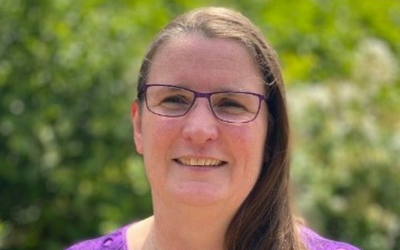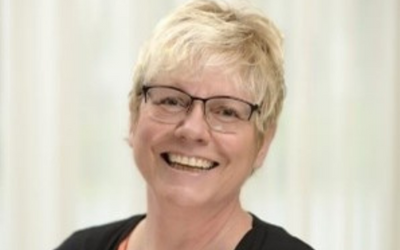You are here
- Home
- External Events and Publications
- Biennial APS Conference
- APS Conference 2023
- Conference programme
- Language Technology in the workplace: an A.I. student co-creation project
Language Technology in the workplace: an A.I. student co-creation project
Dr Andrew Gargett, Dr Mirjam Hauck, Joseph Kwarteng, Mychelle Pride and Tracey Inverary, The Open University
Email: andrew.gargett@open.ac.uk; mirjam.hauck@open.ac.uk; mychelle.pride@open.ac.uk; joseph.kwarteng@open.ac.uk
Session recording
Presentation
Abstract
We report on a Test and Learn project rooted in the Equality, Diversity, and Inclusion strategy of our institution. We are collaborating with students from an access and widening participation background to co-create a course in Artificial Intelligence, more specifically on “Language Technology in the Workplace”. We are working towards faculty targets for Black, Asian, and Minority Ethnic students, students with a declared disability, and students who reside in IMD (Index of Multiple Deprivation) Q1. We want to enhance completion and module good pass results for IMDQ1 students in particular, but also for both Black and Asian students, and for students who declare a disability including mental health difficulties, i.e., across all three APS characteristics. In parallel, the A.I. (Artificial Intelligence) sector worldwide has historically low participation rates for women, as well as for people from a range of minority groups, including Black, Asian, and Minority Ethnic groups and members of LGBTQ+ communities, due to entrenched attitudes and practices within IT.
Our work integrates established design principles into co-creating the curriculum, ensuring more effective collaboration within a complex team (from student stakeholders to faculty and curriculum specialists). Through a series of workshops, participants journey through a typical design cycle: from
- (1) pre-workshop preparation, to
- (2) participating in conceptualising and developing curriculum material, then
- (3) post-workshop critical reflection, and
- (4) iterating through (1) to (3) several times.
We aim to:
- Create a methodology for developing technology courses that account for interests and study preferences of as wide a range of learners as possible.
- For staff to better understand motivations and interests of students from a variety of backgrounds.
An important outcome is that students feel their views and contributions are valued and that their identities and backgrounds are reflected in course content.
Dr Andrew Gargett
Lecturer in Artificial Intelligence, The Open University
Dr Andrew Gargett: I am Lecturer in AI, within the School of Languages and Applied Linguistics. My research is on using AI technologies to capture social information and thereby facilitate interaction between agents (natural and artificial). In addition, I am creating teaching materials on AI technology for the OU, focusing on how such technology should be developed and deployed to maximise overall benefit, and avoid exacerbating inequity and marginalisation.
Dr Mirjam Hauck
Associate Head for Internationalisation, Equality, Diversity and Inclusion, The Open University
Dr Mirjam Hauck: I am Associate Head for Internationalisation, Equality, Diversity and Inclusion in the School of Languages and Applied Linguistics. In my research I focus on the use of technologies for the learning and teaching of languages and cultures, in virtual exchange (VE) contexts in particular, that is online collaborative learning between groups of students in different cultural contexts and/or geographical locations. I am particularly interested in critical VE: student online collaborative project work with a social justice focus.
Joseph Kwarteng
PhD Research Student (KMi), The Open University
Joseph Kwarteng: I am a PhD Research Student at the Knowledge Media Institute (KMi) of the Open University and a member of the Social Data Science group. My research project is aimed at investigating Intersectionality in Hate Speech Detection with a focus on "Misogynoir" - a unique form of misogyny experienced by Black women with the intersection of sexism and racism.

Mychelle Pride
Associate Dean for Teaching Excellence, The Open University
With more than twenty years’ sector experience, Mychelle’s work has focused on enabling students to achieve to the best of their abilities, improving student voice/engagement, and quality assurance and enhancement. In her current role as Associate Dean Students and Teaching in the Faculty of Wellbeing, Education and Language Studies (WELS), Mychelle has strategic responsibility for student outcomes, Access, Participation & Success (APS), student voice/engagement, and recognising and rewarding teaching excellence. Mychelle’s research interest is student mental health, in particular, what an institution can do to help students with mental health difficulties stay on their courses and achieve positive results.
Tracey Inverary
Student Consultant, The Open University
I am working in Higher Education to ensure awareness through inclusive curriculum tools, my experience and lived understandings of students, when cultivating learning programmes to support inclusion of all students in the global conversation and equitable outcomes in learning for students in higher education. I consult and work with central academics and HE leaders, educators, design teams on inclusive curriculum design, methodology, module content and assessment strategy. Other areas of consultation expertise include instructional design, policy content and changes, academic awarding and standards, leadership and management, staff development, pedagogical approach, HR, mentorship, mentoring and career programmes.
I have been dedicated in a voluntary as well as remunerated capacity, to the improvement of instruction as an academic mentor and tutor (in a few subjects, with a key focus on English for KS 3-5) and youth mentor to adolescents and adults for most of my life persistently seeking their growth and establishment in self-direction and self-regulation to build resiliency and attain the success potentiality that exists within them.



